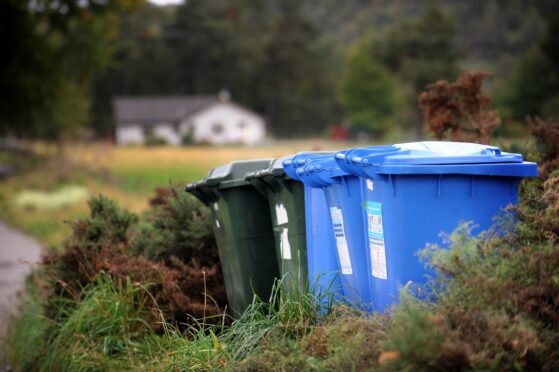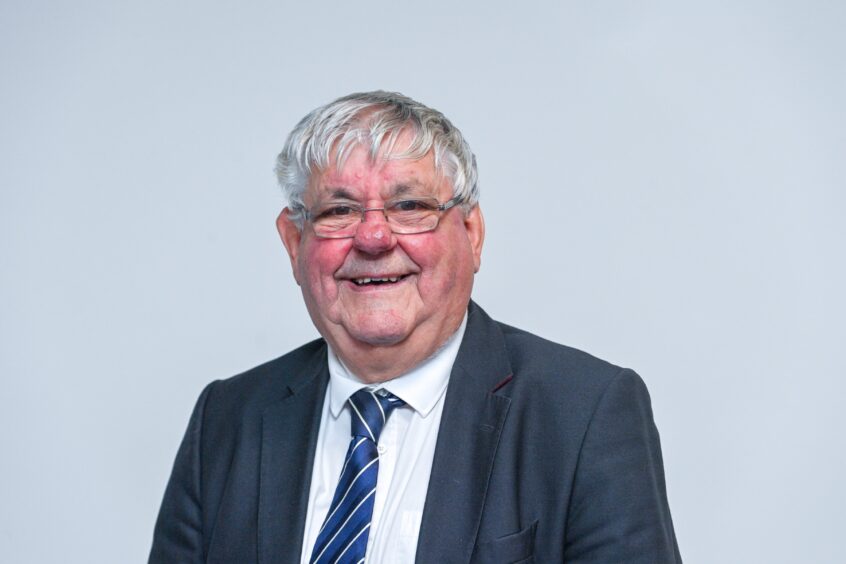Highland Council is considering the best way to spread the word as it edges closer to some major changes to its bin collections next year.
Your general waste bin is about to get a lot smaller, there will be two types of recycling and more than 20,000 households will be added to the food waste collection service in 2024.
The good news is that the changes will not be directly responsible for a bump in council tax as the move to modernise recycling is being funded by a £6.5m investment from the Scottish Government.
What is changing?
Currently, most Highland households have two bins: a green bin for waste and a blue bin for recycling.
Many also pay £47.75 a year for a brown bin for garden waste.
In 37,000 households across Inverness, there is also a smaller food waste collection bin.
From next spring, the council wants people to spread their recycling across two bins.
They also want people to throw less waste to landfill.
To do this, the council is changing what goes in each bin.
And they’re adding a new one, which will be grey, into the mix.
How will it work?
Green bin – mixed containers
Your current green bin will be repurposed for recycling.
It will be for “mixed containers” – which means plastic bottles, pots, tubs and trays, as well as cans, tins, foil and cartons.
Blue bin – paper and card
Paper and card will now be recycled separately from containers.
This makes it easier for the council to sort our recycling. The blue bin you currently use for all recycling should now only be used for paper and card. Any other recyclables go in the green bin.
New grey bin – general waste
Every household will receive an additional bin for general waste – but it’ll be smaller.
Instead of the standard wheelie bin size – 240 litres – this one will be 140 litres if you’ve already got a food waste collection bin or 180 litres if you don’t.
The hope is that providing more room for recycling will encourage people to throw away less waste to landfill.
Brown bin – for garden waste
No changes for the brown bin service.
The permit has increased from the £30 it cost when it was introduced in 2017 but the council has announced a freeze in the £47.75 permit cost for at least one more year.
When will I get a food waste bin?
At the moment, only households in Inverness can recycle their food waste.
However, from next April it will be extended to 14,500 households in Ross and Cromarty.
This includes:
- Alness
- Avoch
- Conon Bridge
- Culbokie
- Dingwall
- Evanton,
- Fortrose
- Invergordon
- Kildary
- Maryburgh
- Milton
- Munlochy
- Muir of Ord
- Rosemarkie
- Strathpeffer
In May 2024, 5,500 homes in Nairn and Auldearn will be added, as well as a further 3,000 in the greater Inverness area in Ardersier, Beauly, Croy, Bunchrew, Drumnadrochit, Kirkhill and Tornagrain.
The timeline for the rest of the region to be added is:
- Badenoch and Strathspey in August 2024
- Caithness in September 2024
- Sutherland in October and November 2024
- Skye and Lochalsh in March 2025
- Lochaber in April 2025
Vans and trailers trial at Inverness recycling centre
There are also changes on the way at the Inverness recycling centre in Henderson Drive.
A new six-month trial to allow vans and trailers to deposit small amounts of DIY waste was approved by councillors today.
Previously, they could only visit the centre by making an appointment first.
The council is planning a social media campaign to make people aware of all the changes coming into force next year.
Councillor Graham MacKenzie, chairman of the communities and place committee, said: “The service changes are essential to achieving a sustainable collection service model, particularly against the backdrop of a large budget deficit.”



Conversation